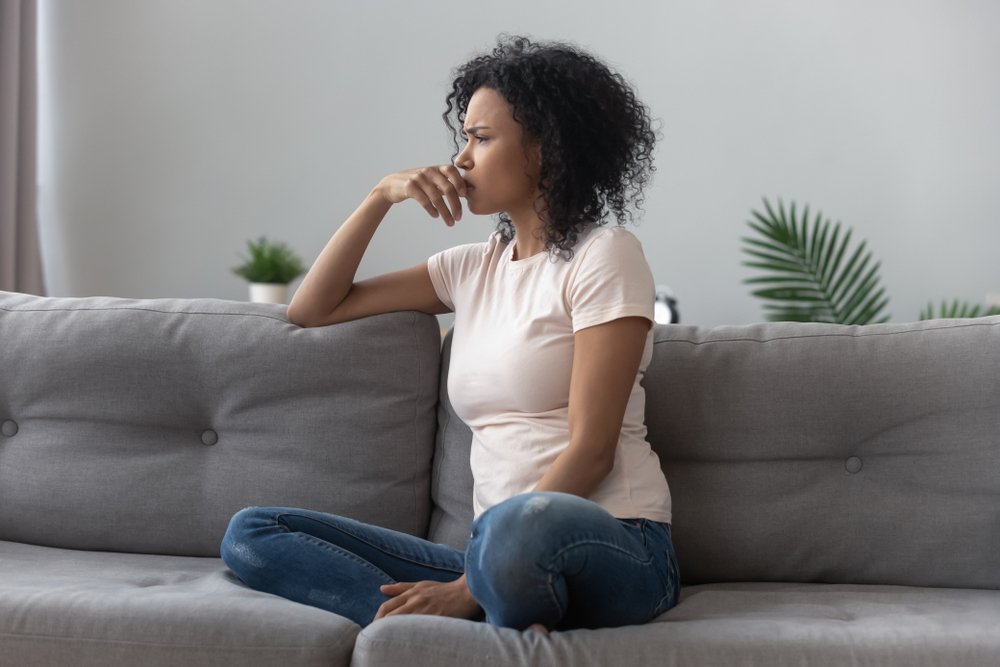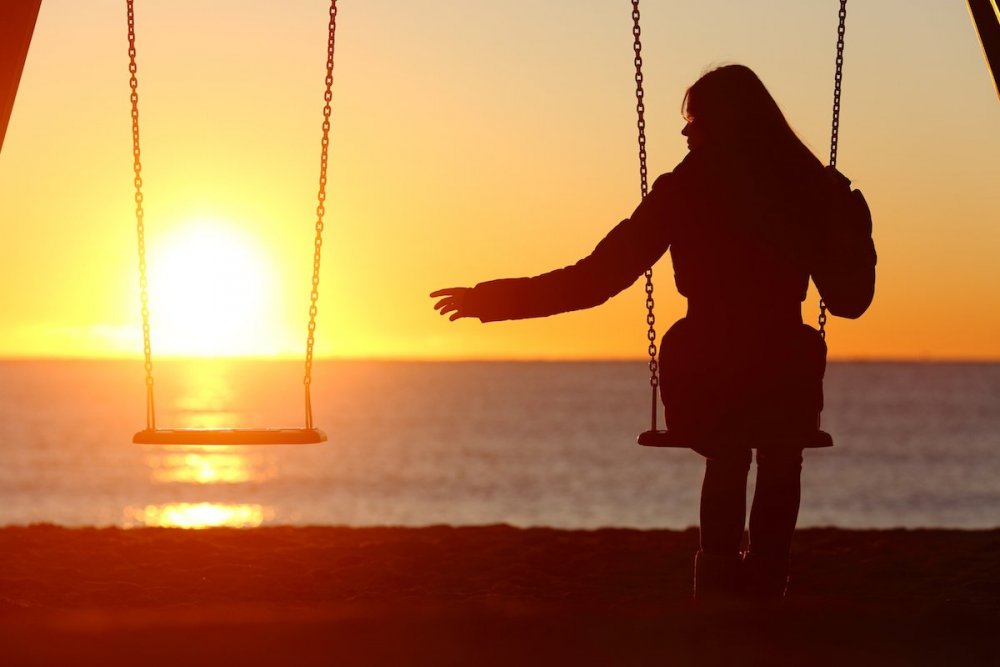While we will all experience grief at some point, you may not even realise you're experiencing the emotion, as it's usually only connected with death. In fact, there are many different types of grief, as Dee Marques explains.
Grief is perhaps one of the most misunderstood emotions: we tend to think of it as something related to the death of a loved one, but, in fact, it can appear as a reaction to many different types of loss.
Grief is also misunderstood in that people seem to have an expectation of how it should be experienced. However, although we’re all likely to experience grief at some point in our lives, we’ll all have different ways of dealing with it. Understanding the different types of grief is important so we’re better prepared and so we can be supportive of others who are going through it.
What is grief exactly?
Grief is a strong emotion that appears when we face loss, whether that loss is of a person or a thing that’s important to us. You can experience grief as a result of losing your home, a job, or even the sense of freedom after a sabbatical or a long trip. In short, grief can appear when we lose anything we form a strong emotional connection to, and is linked to losing identity, freedom, or expectations.
The emotion of grief itself is a natural response and part of the process we must go through to get used to a new situation, but it’s often felt as a roadblock in our path to happiness.
There are many different grief types shutterstock/fizkes
It’s often said that the stages of grief go from denial to acceptance, but some claim this only applies to the types of grief linked to the death of a loved one. The truth is that grief can be messy and doesn’t necessarily follow a clear path, and according to psychological studies, in some cases it may even come and go in cycles and be anything but an orderly linear process.
RELATED: 7 healing quotes on grief to inspire
The way we experience grief is unique to each one of us and can depend on factors like beliefs, background, personality, age, support network, and health - both mental and physical. All these factors contribute to the uniqueness of each grief experience, and can derive into any of the main types of grief described below.
The 8 types of grief explained
These are the main types of grief that exist. We may experience one or more of them while dealing with a loss.
1. Anticipatory grief
This is one of the least well-known types of grief. It’s possible to feel grief before loss actually happens, for example, if you know someone who has a terminal disease, the emotion may start to creep in before they pass away.
Anticipatory grief can be complex, as seeing someone suffer and finally letting go may bring a feeling of relief, for which people feel guilty. People may also feel guilty thinking that feeling grief equals giving up on hope. And while some say that anticipatory grief lessens the impact or loss after the person passes away, in other cases it doesn’t always work that way.
2. Normal or common grief
Some people carry on with their normal routine despite the feelings of grief. From the outside it may seem as if the person has not been affected by it, but pain, numbness and other feelings are still present under the ‘normal’ surface. It’s common for acute feelings of grief to come in bursts, so they may not be obvious to everyone unless they’re with the griever 24/7. The intensity of feelings gradually lessens over time until we find ‘the new normal’.
3. Complicated grief
Next in the list of types of grief is complicated grief, which is experienced by a small percentage of people. Here, pain is so overwhelming that it actually prevents them from going about their daily lives.
“Understanding the different types of grief is important so we’re better prepared and so we can be supportive of others who are going through it.”
Complicated grief is characterised by irrational thoughts and may also be expressed as avoidance behaviour (for example, by avoiding things that remind the griever of the person or situation that have been lost). Unlike common grief, this doesn’t happen in bursts but rather as a constant feeling that makes the person feel trapped with no end in sight. This is one of the types of grief that may develop into self-harm or mental illness if the griever doesn’t get the support they need.
4. Delayed grief
Sometimes, feelings linked to grief don’t appear immediately after losing something valuable. For some people this means the feelings grow stronger with time after having lost someone or something, or they find it harder to cope months later than in the initial aftermath of the event.
Delayed grief seems to be more common when losing a loved one happens alongside other significant changes, such as losing a job or a house, developing health problems, or when the griever feels they are the strong family member and must focus on caring for others.
RELATED: Dealing with the death of a parent: 6 useful tips for coping
5. Inhibited grief
Inhibited grief appears when the griever avoids facing the realities of losing something or someone by turning their attention to other things. People may put all their time and energy into something that will keep them distracted and they hide their feelings in the hopes this will avoid pain.
However, inhibited grief can lead to exhaustion and manifest itself in physical symptoms like migraines, digestive issues, nausea, etc. Sometimes it can lead to one of the other types of grief discussed above (ie, delayed grief).

Ups and downs: loss and grief affect us differently shutterstock/Antonio Guillem
6. Disenfranchised grief
Unlike with the other types of grief mentioned above, people experiencing so-called disenfranchised grief usually get little support or acceptance. Disenfranchised grief may happen after losing a pet, a non-family member, or a part of ourselves (such as losing function of a body part after an accident). The loss isn’t often recognised by society as being ‘worthy of grief’, which puts even more pressure on grievers, as they feel that no one else understands them and they may struggle thinking that they must suppress their emotions.
• JOIN US! Sign up to get support from our caring community •
7. Absent grief
This is similar to inhibited grief in that the person silences their feelings and carries on as if nothing has happened, but absent grief is a more extreme version that revolves around avoidance or denial. Indeed, there are reports of extreme cases such as an 80-year lady whose grief was absent for 30 years after losing a son, as she refused to believe her son had passed away.
RELATED: Holiday grief - 10 tips for coping
8. Exaggerated grief
Last in the list of the main types of grief is exaggerated grief, which is similar to complicated grief in that sorrow and the inability to function don’t improve over time. This may be the result of experiencing several losses at the same time or over a short period of time, so the griever feels lost and unable to cope. If not resolved, exaggerated grief can easily turn into depression.
So, what can we learn about these types of grief?
The takeaway message is that grief is a universal emotion, but the way we experience it isn’t. When learning to live with grief, it’s essential to understand that there’s no standard formula and we need to find the best ways of processing it for our particular circumstances. Understanding and recognising the eight types of grief can get us one step closer to happiness and will also help us be a source of support to others who are grieving. •
Main image: shutterstock/KieferPix
Are you struggling with grief or have some useful tips on how to deal with it? Then head over to our forum and share your thoughts with the community.
happiness.com | The fine art of being: learn, practise, share
Are you a happiness.com member? Sign up free to:
■ enjoy our happiness magazine
■ share and support in our happiness forum
■ develop with free online Academy courses
Written by Dee Marques
 A social sciences graduate with a keen interest in languages, communication, and personal development strategies. Dee loves exercising, being out in nature, and discovering warm and sunny places where she can escape the winter.
A social sciences graduate with a keen interest in languages, communication, and personal development strategies. Dee loves exercising, being out in nature, and discovering warm and sunny places where she can escape the winter.




Join the conversation
You are posting as a guest. If you have an account, sign in now to post with your account.